9 Off the Grid Water System Ideas
Most of us looking for an off the grid water system have two things in mind: Being as green as possible and being as healthy as possible. We’re looking to restore whatever we can to the health of the planet while ensuring we are consuming fewer toxins and unnatural chemicals than we did when living in the cities.
There are some obvious options, some easy options, and some more complicated systems – any of which might simply be the best choice for your situation. You’ll need to do a bit of study and experimentation, but, hopefully, these will shorten the time you’re stuck with on-the-grid water systems.
A Well
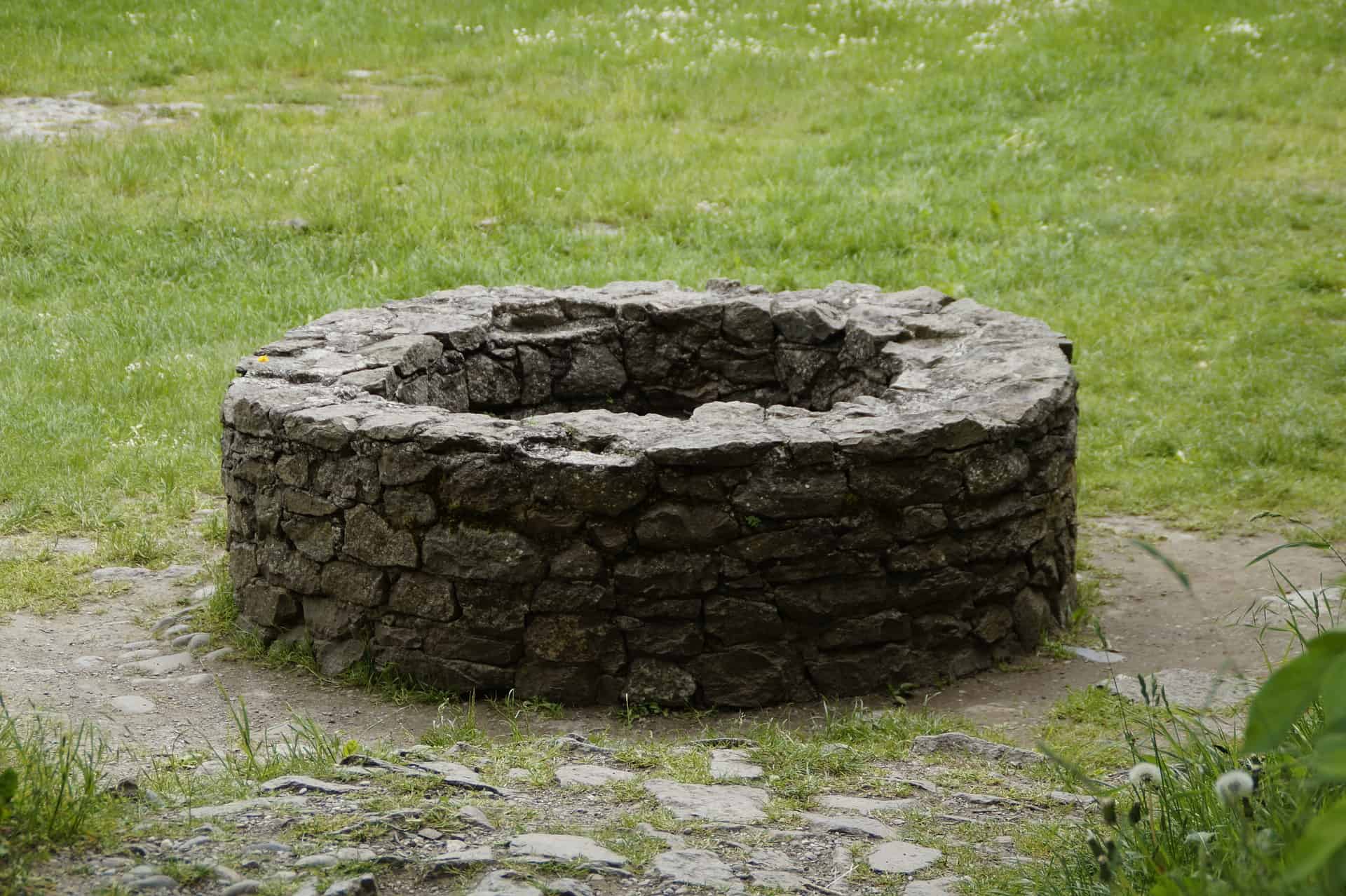
The first and potentially most logical option for any homesteader is digging a well. This solution isn’t viable everywhere, of course, especially for folks living on shared land, in places where building and zoning restrictions may cause issues, etc., but it is the most basic solution of all.
The initial cost can be expensive, unfortunately, often costing more than $10,000 up-front. But if you’ve got the cash and the land, this is your best bet for the best, clearest water possible, assuming you live somewhere safe to drill for water.
Wells are also one of the longest-lasting options out there, with less maintenance than many other systems, meaning that once you’ve drilled, you’re pretty much set for decades. In the 20+ years on our land, we only ever had to have maintenance twice. And the well was already 20+ years old.
Via Well Owner
Wind-Powered Water Pump and Well
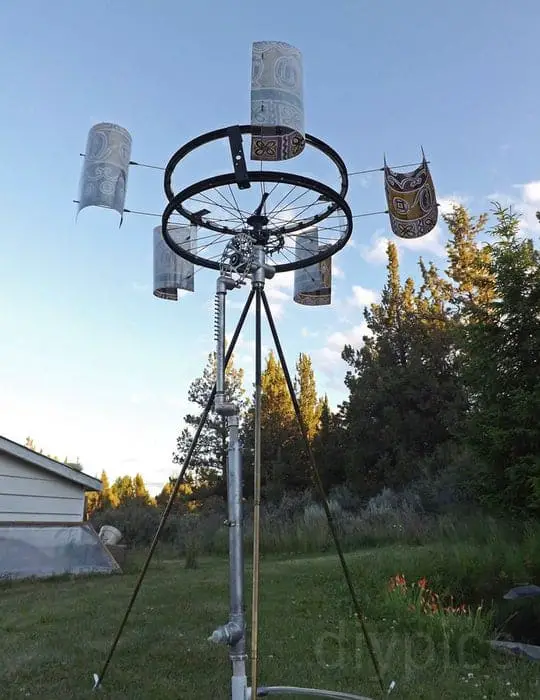
If you’ve decided to go with a well, there are a few off-the-grid ways of powering your water system. And having grown up with a well which we often lost power for – thank you, Florida hurricane season – these are really important to consider, not simply because you’re trying to help save the planet.
There are pre-made windmills that you can purchase for installation on your land where the well needs to supply your water system. You can also hire someone who’s more electrically inclined to install the system as well. And, in fact, generally speaking, we’d recommend doing so for safety’s sake.
There are kits, as well, that are a bit easier to install, which may be more suitable for your situation, as well, but again, you may want to hire someone who knows how to work with electricity to install this system. Despite being wind-powered, there’s still electricity involved.
Wind power is only useful in certain locations – mountains and forests are not those locations! – but flat, open spaces are going to benefit from this power source. Not only will it lower your energy bill, and save on non-renewable energy, it will also ensure you have water even when storms come through and knock out the standard power.
Wind-powered systems are also best for locations without as much direct sunlight year-round as say, sunny Florida. Seattle, Portland, and spots in Alaska will find wind-power is more reliable than solar energy most of the year.
This Instructables tutorial is pretty basic, but it will teach you the basics on how to set up the wind-powered system.
Via Instructables
Solar-Powered Water System
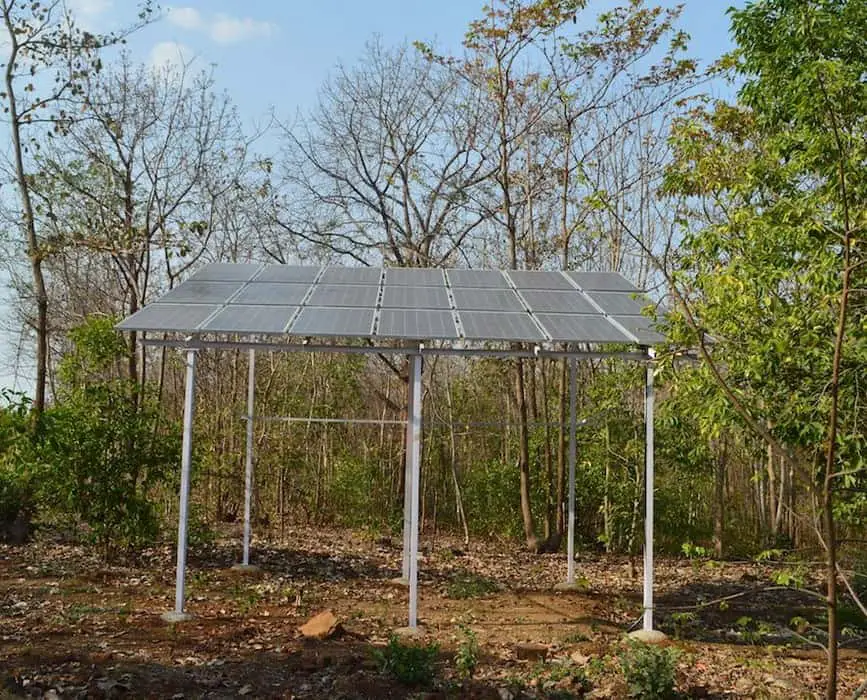
Now, again, for those looking for fully off the grid water systems, solar energy is a great option. It works best in certain areas of the planet – sunny Spain, Florida, California, Australia – and works in more environments than wind-power, assuming there’s enough sunlight.
You can purchase pre-made solar kits that include solar panels, converters, and other components, or you can pay someone to choose and install everything for you. Even if you choose to create your own kit, it’s highly recommended that you hire someone to work with the electrical aspects of the setup.
This particular Instructables tutorial will help you figure out how to install your own solar-powered water system. And this system will virtually guarantee you have power to your well, since solar-powered systems can store energy for use during storms, rainy days, etc.
Via Instructables
Rain Barrels
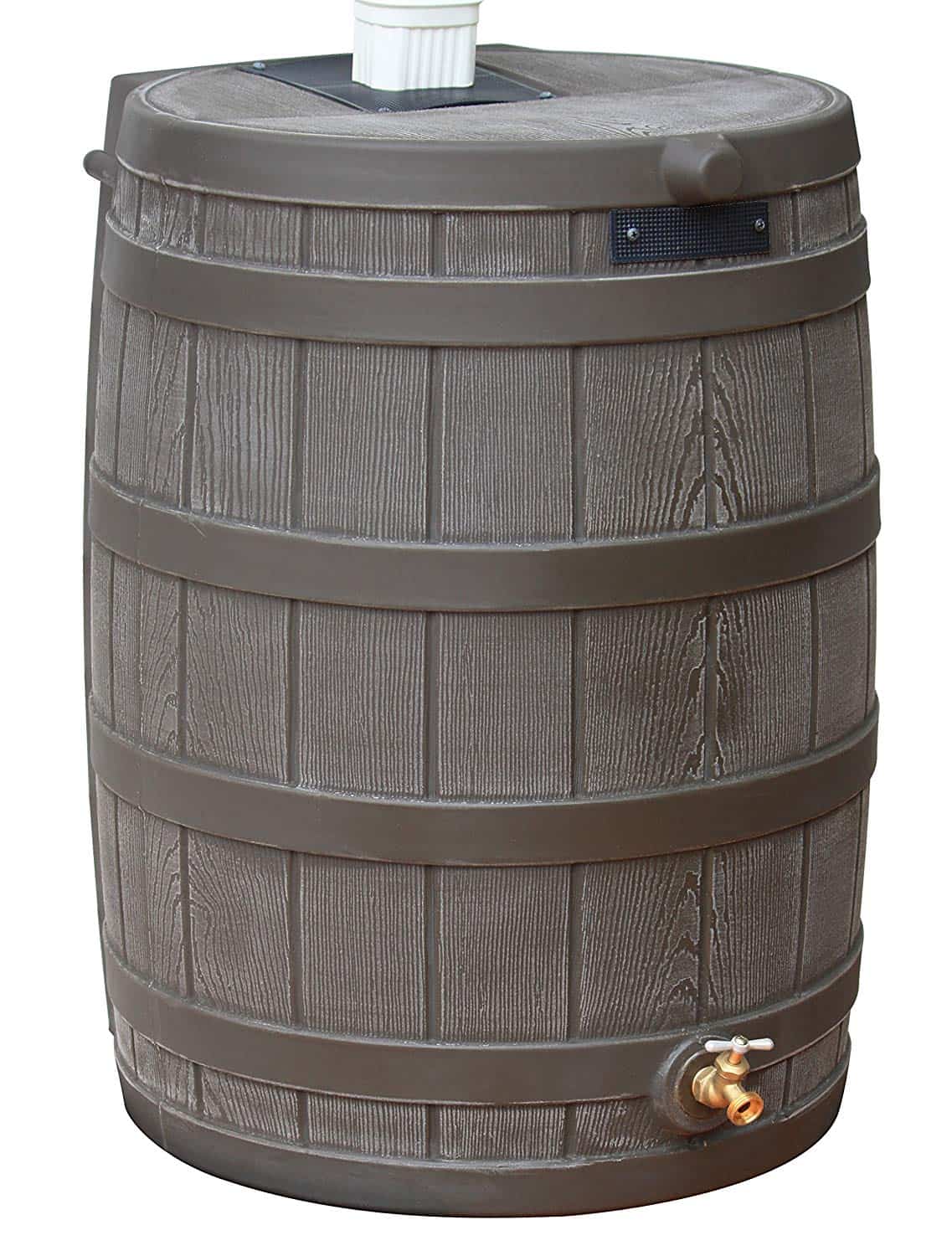
No matter what type of water system you decide to use ultimately, you may want to consider incorporating rain barrels into your system. They’re a nearly free, easy way to collect pure water – unless you live in the city – for off grid water storage that can be used for many things, including gardening, showering, and laundry.
These help to save water on a daily basis, especially in rainy climates, as well as supplement any water system you may have for use in your outdoor areas. Rain barrels are especially great for tiny houses, people who have large gardens and greenhouses, or for those who simply want to do a bit more to be green.
You can find rain barrels just about anywhere online from Wayfair to Amazon, Ace Hardware, and anywhere else that outdoor supplies are available. They’re also reasonably cheap compared to alternatives.
And, if you live in a rainy enough climate, rain barrels could reduce your footprint significantly while making it easier to simply have fresh, clean water available at any time, for almost any need, save drinking water. And if you really want to have drinking water, there areways to purify rainwater for that.
Via How Stuff Works
A Pond
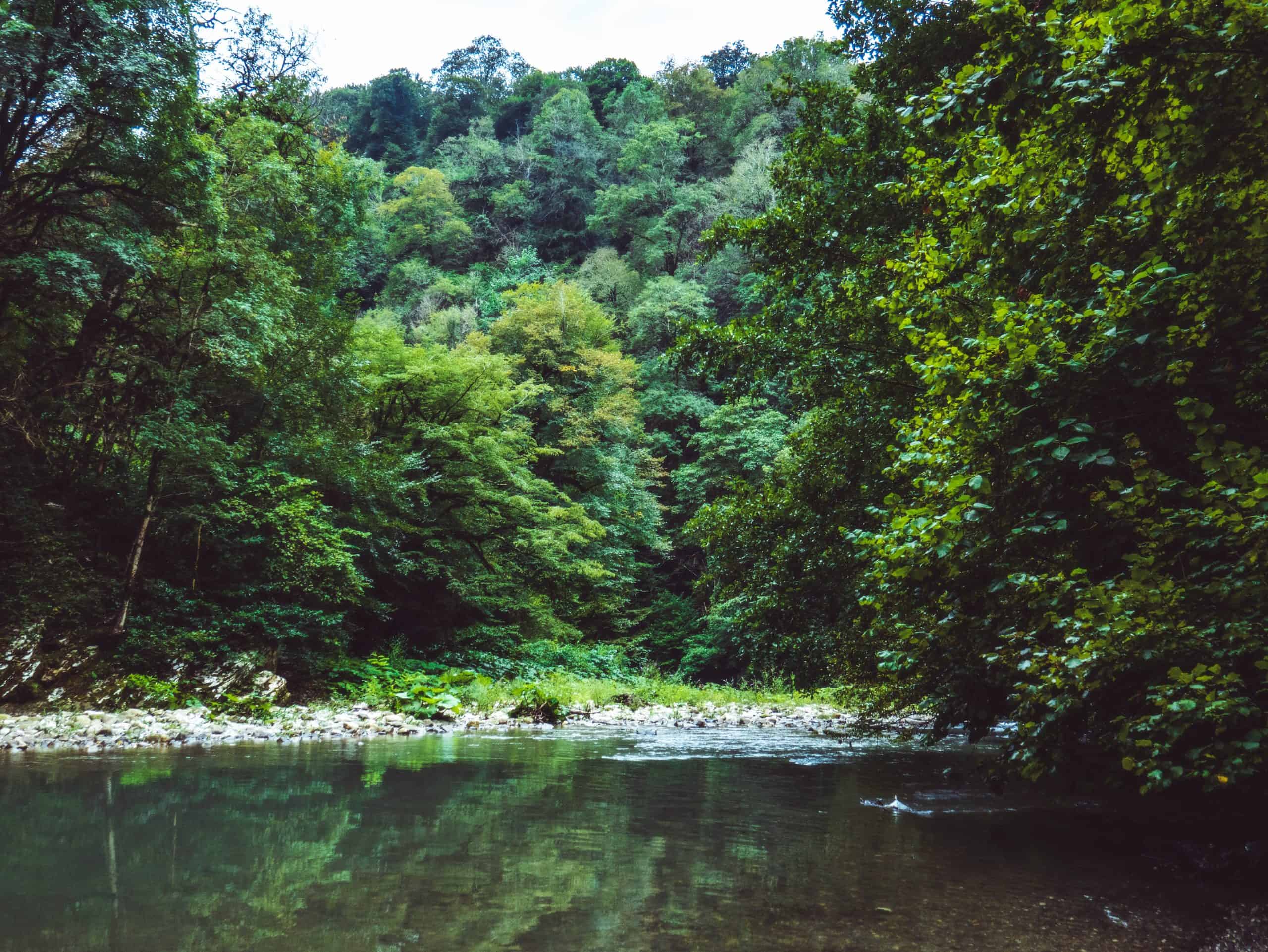
This is a unique alternative for providing water to your water system. If you already have a pond on your land – or have the type of land where you could install one – this is a great alternative to many of the others for a backup water source.
With a pond you can obviously have some lovely wildlife neighbors – who doesn’t love watching ducks, geese, and dragonflies congregate around the old watering hole? – but you’ll also find you’ve got an easy water source, assuming you’ve got a pond on the land.
A pond shouldn’t be your primary water source, of course, but it will definitely provide loads of water in an emergency of some kind – and could be a literal life-saver.
Ponds are reasonably easy to maintain, which is a huge bonus, and they are refilled naturally by the rain, dew, and other natural sources of water – especially if you can somehow tie your pond into a natural spring on the land.
The primary downside to ponds, though, is that they require extensive cleaning and filtering for the water in them to becomepotable. You’ll also need some kind of pumping system that would work on those rare emergencies when you use the pond water as a source in your family’s water system.
Via Insteading
Water Cisterns
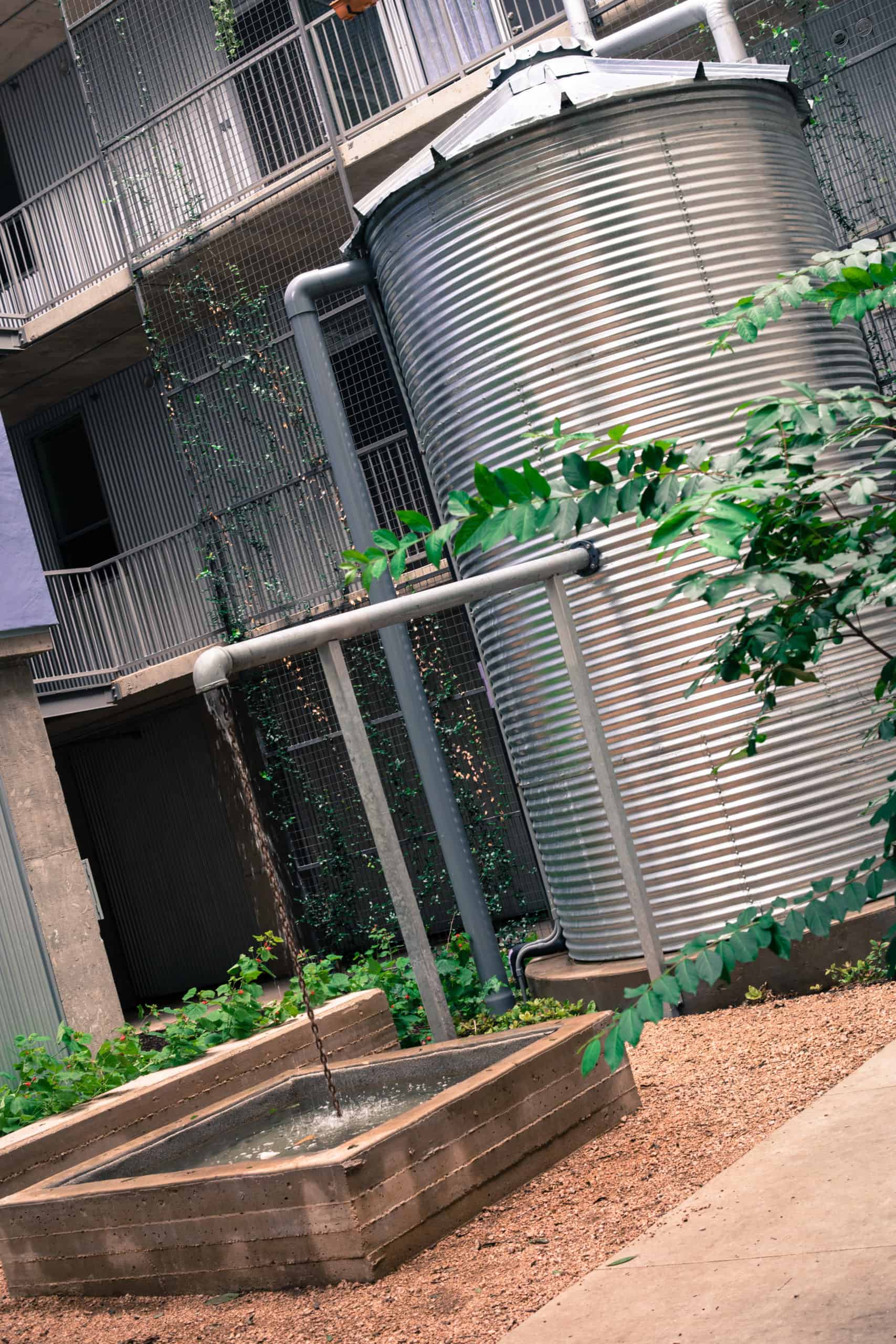
Water cisterns are an ancient water system that we can still use today effectively without compromising our goals at becoming green and fully off-the-grid. This form of water system has been around since Biblical times, with reference after reference made to them found in the pages of the ancient text.
Conveniently, cisterns can be positioned above ground or below ground, so depending on the type of land you have, they have extra benefits for you over some other systems. And depending on your setup, they can be made from a variety of different materials.
You can have a cistern that’s hewn from stone, constructed of metal, made from high-quality plastic, or even sculpted out of cement. Before deciding which type is most suitable for your situation, you’ll want to study somein-depth materials.
Cisterns are an off-the-grid passive water system that provides you some water pressure, if they’re elevated higher than the tap. They’re a simple, inexpensive gravity-fed system that works in many, many settings.
Via Insteading
A Full Lake-Based Off-Grid System
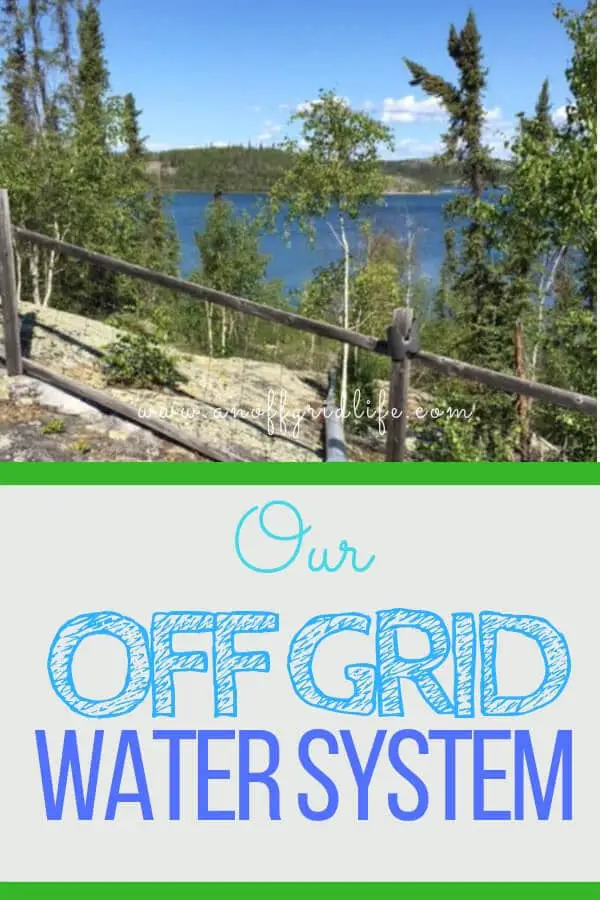
One of the best situations for building a fully off-the-grid water system is if you have access to a clean lake. If the lake is large enough or you are the sole owner with property on the lake, you should have more than enough fresh water to supply for your needs.
The website discusses the way this family went about constructing their own lake-based water system that provides for all their needs. You’ll want to study it in-depth before embarking on your own system and possibly look up some other options as well, to see if there may be another system that complements this one for your situation.
The key with this type of system is the water quality. You’ll need to run regular tests – usually annual or semi-annual are enough – to verify the quality of the water is pure enough to drink.
Via An Off Grid Life
Easy, Affordable Gravity Fed Water System
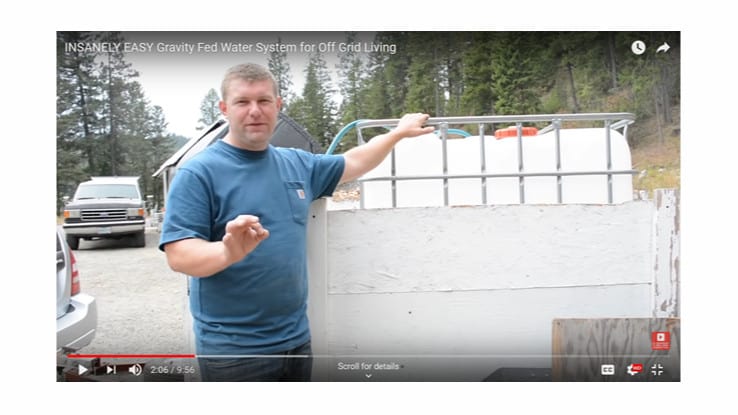
This video shows you a unique take on an easy to build, very affordable, portable gravity fed water system. The family that built this one has done everything they can to get completely off-grid, and uses this water system (and another) to live a green life.
This particular water system is this family’s second phase of the gravity-fed water system. It’s a more doable system for many, though it is more for temporary needs, rather than a full set up for something like a homestead.
Instead, this system is more for portable settings, such as a tiny house, RV, camping setups for a season, or other temporary situations. This would be great for someone building a new house on their land and needing a temporary system in place while that’s happening.
Watch the videos for ideas and knowledge on how to set up your own system. You’ll likely discover things you’d tweak to build your own, but it’s a solid starting point for anyone new to off-the-grid water systems.
Via Youtube
Hauling Water
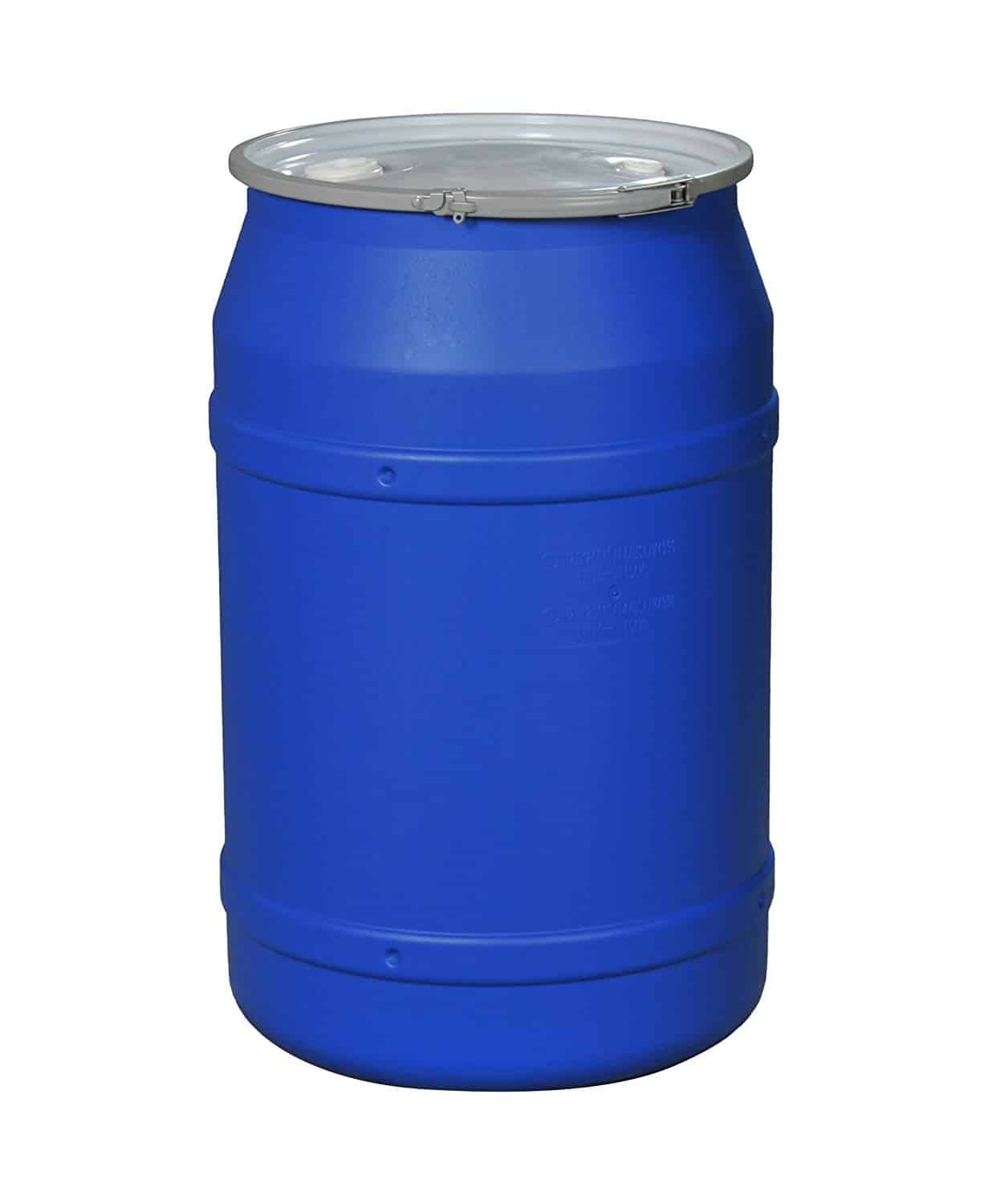
This is probably the least attractive alternative, but it is still a viable option in some cases. In fact, much of the world still does this. They load up barrels of water and lug them home every day. In some places, this is all that some people spend their daytime doing.
We have a great advantage over most other societies, however, as we have vehicles that can bear the weight of the water. We can also fill up as many water barrels and bottles as we can fit into the bed of our trucks. It just is definitely more work than most of the other options.
The benefit, of course, of this system is that your system won’t ever break down. You’ll just have to replace the barrels every now and then. And bonus, you’ll build some muscles doing this, whether you’re just lugging the barrels to and from the truck or taking them up a hill on a pole.
The negatives are that this system does require some physical fitness level that not everyone is capable of. The buckets and barrels must also always be kept clean constantly or they will quickly grow mildew and mold.
Via Insteading
Water Systems for Any Situation
Whether you live in the city and want to have some back-up water sources – or green sources for watering the garden and lawn – or you’re a homesteader working on getting totally off-the-grid, these various water systems are likely to provide what you need.
The key to each system is understanding fully how they work, what the up-front costs will be, maintenance levels along the way, and whether or not the water will be pure enough to drink without major filtration systems also in place.
If you’re not totally sure which off grid water solutions will work for you, do some in-depth study on each one and look for someforums wherediscussions are had on the regular.